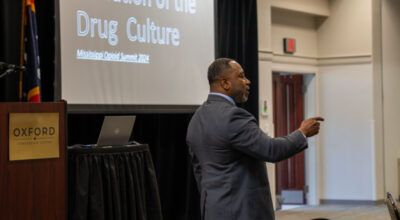Homeless count set for region
Published 12:00 pm Friday, January 8, 2016
Organizations around Mississippi who help homeless people, or those about to be homeless, will help officials get a better idea of how bad the homeless situation is throughout the state.
The Mississippi Balance of State Continuum of Care organization will conduct the homeless census, also known as a Point in Time Count, on Jan. 25.
The target area includes the entire state, excluding the Jackson Urbanized area and the Mississippi Gulf Coast. The U.S. Department of Housing and Urban Development, HUD, compiles the local counts of homeless individuals, both at the shelter level and on the streets. In 2015, the study showed 564,708 people were in shelters and on the streets during a one-night count nationwide.
HUD estimated that 6 percent of those counted were veterans. In Mississippi, the count showed 1,983 people without shelter.
Local community organizations that work with homeless individuals in each town are asked to submit their numbers as to how many people they have in a shelter or on the streets on Jan. 25.
“For example, if they were to call me today, I would tell them six people — two individuals in a hotel and a family of four,” said Lena Wiley, director of Interfaith Compassion Ministries in Oxford. “These are people who literally have nowhere to go.”
The definition of homeless by HUD is not having a roof over their head or living/sleeping in places not meant for human habitation or living in emergency or transitional housing.
Reginald Glenn, Continuum of Care coordinator, said the organization takes the count each year for a couple of reasons.
“The numbers are submitted to HUD, which includes them in an annual homeless report given to Congress,” Glenn said. “We use the numbers to tweak our own services that we offer. As we find homeless on the street, we are also doing a needs assessment — what kind of struggles they are facing. One thing we’ve found is many homeless persons are suffering with some form of mental illness. We use data like that so we can better help our homeless population.”
These “snapshots” of the homeless population offer communities a powerful tool to gauge their homeless challenge and to create innovative housing solutions in response, Glenn said.
Balance of State also works with Doors of Hope Transition Ministries in Oxford that provides temporary housing to families while they learn to better budget their money and look for work.
The homelessness prevention program works with clients who are in danger of becoming homeless or may already be without a permanent place to live by giving them a rent- and utility-free apartment for about four months while helping clients learn to budget, further their education and save money for their future.
Carrie Driskell, a social worker with Doors of Hope, said if the count was today, they would report three adults and four children being sheltered currently.
“Pretty much most of our families are either living in crowded, multi-family conditions or in bad housing situations with mold, mildew and just really inhabitable places before they come to us,” Driskell said. “Many are high school dropouts, or just couldn’t find a job and are often just one check away from being homeless.”
The organization is still seeking volunteers to help with the count. For more information, visit msbos.org/pit or email pitcount@muteh.org.





